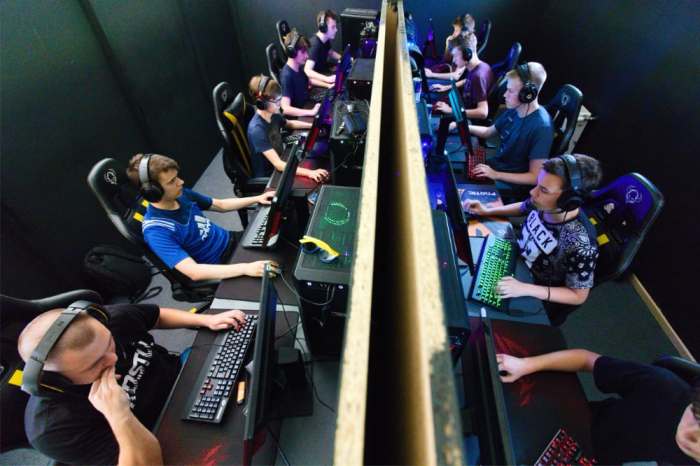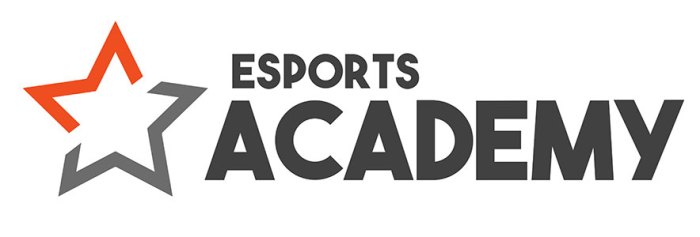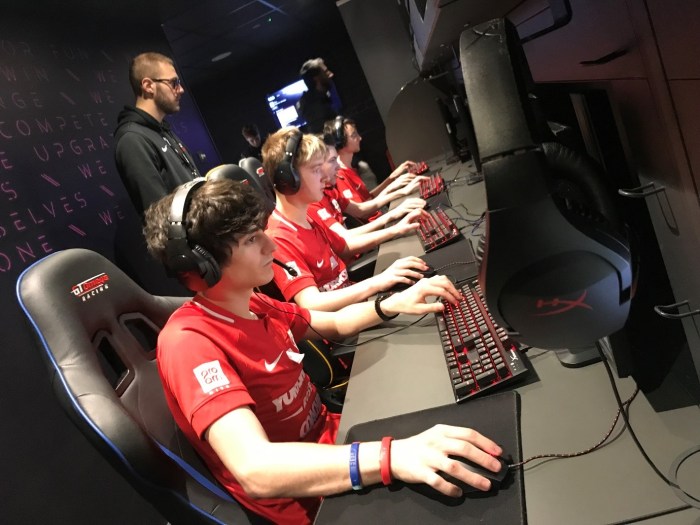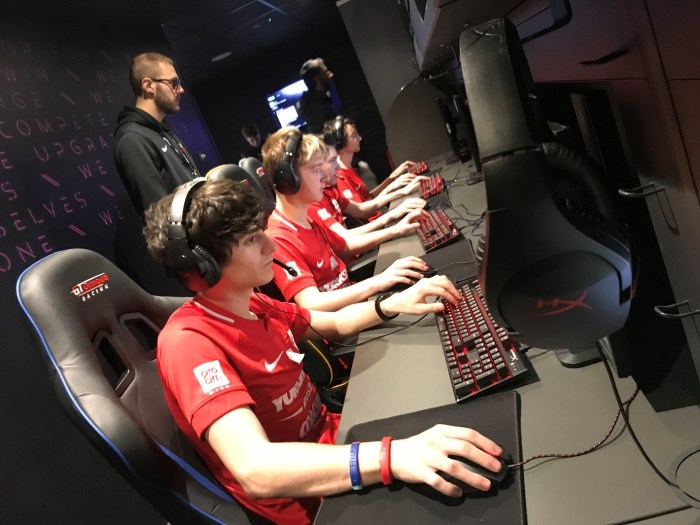Esports Academies are exploding onto the scene, offering a structured path for aspiring pro gamers. Forget basement setups and late-night solo queues – these academies provide a blend of rigorous training, strategic coaching, and the resources needed to compete at the highest level. Think of it as college, but for esports. We’ll dive into the business models, curriculum, and everything else you need to know about this exciting field.
From securing funding and building a killer curriculum to recruiting top talent and navigating the legal landscape, running a successful esports academy is a complex undertaking. This exploration covers the various business models, the importance of physical and mental wellness, and the crucial role of partnerships and sponsorships. We’ll also look at post-academy support and the ethical considerations that are vital to building a thriving and sustainable esports ecosystem.
Competition and Tournament Participation

Participating in esports tournaments is a huge part of the collegiate esports experience, offering invaluable opportunities for growth and development beyond just gameplay skills. It’s a chance to test your mettle against other top teams, build camaraderie, and even earn some serious bragging rights (and maybe some scholarships!). However, it also presents unique challenges that require careful planning and preparation.Esports tournaments offer numerous benefits for academy students.
The competitive environment fosters rapid skill improvement, forcing players to adapt and strategize under pressure. Winning builds confidence and teamwork, while even losing provides valuable learning experiences. Exposure to the competitive scene also helps students develop crucial soft skills, such as communication, time management, and strategic thinking – all highly valued in many professional fields. Furthermore, successful tournament performance can attract the attention of college scouts and professional teams, potentially opening doors to scholarships or professional gaming careers.
Benefits and Challenges of Tournament Participation
Tournament participation presents a double-edged sword. While the benefits – improved skills, team cohesion, and potential scholarship opportunities – are substantial, there are significant challenges to overcome. The intense pressure of competition can lead to stress and burnout if not managed properly. Travel costs and time commitments can also be significant hurdles, requiring careful logistical planning and dedicated support from the academy.
Additionally, the unpredictable nature of competitive gaming means that even the most skilled teams can experience unexpected setbacks and losses, requiring resilience and a strong team mentality to bounce back. Consistent practice and strategic preparation are key to mitigating these challenges.
Preparing Students for Competitive Esports Events
A structured approach to training is essential for success in esports tournaments. This involves a multi-faceted strategy encompassing regular practice sessions, strategic analysis of opponents, and the development of contingency plans. A typical week might include dedicated scrimmages against other teams, individual skill training, and review sessions focused on past matches to identify areas for improvement. Team building exercises are also crucial to foster a strong sense of unity and communication.
Mentorship from experienced coaches and players can provide invaluable guidance, helping students refine their gameplay and develop effective strategies. Finally, simulating tournament conditions, including the pressure of live competition, through practice matches and mock tournaments is critical to prepare students for the real thing.
The Role of Scouting and Player Development
Scouting and player development are integral to any successful esports academy. Scouting involves identifying and recruiting talented players, assessing their skills, and determining their potential for growth. This can involve analyzing gameplay footage, attending local tournaments, and networking within the esports community. Player development focuses on nurturing the talents of existing players, providing them with the resources and support they need to reach their full potential.
This includes personalized coaching, access to training facilities, and opportunities for skill development through workshops and seminars. A robust scouting and player development program ensures a consistent pipeline of talented players, maximizing the academy’s chances of success in competitive events.
Sample Tournament Schedule for an Esports Academy Team
Preparing a year-long tournament schedule requires careful consideration of various factors, including the team’s skill level, available resources, and the overall competitive landscape. A well-structured schedule should balance high-level competition with opportunities for practice and skill development.
- Fall Semester: Focus on smaller, regional tournaments to gain experience and build team cohesion. This allows for assessment of player performance and strategy refinement before larger events.
- Winter Break: Intensive training and boot camp to address weaknesses identified during the fall semester. This could involve specialized coaching sessions and scrimmages against stronger teams.
- Spring Semester: Participation in larger, national-level tournaments. This is the peak of the competitive season, requiring peak performance and strategic planning.
- Summer: A mix of smaller tournaments and focused skill development. This allows players to maintain their skills during the off-season and potentially participate in online leagues or smaller competitions.
This sample schedule is just a template, and the specifics would need to be adapted based on the academy’s unique circumstances and the game being played. The key is to create a balanced and challenging schedule that maximizes the team’s potential for growth and success.
Career Development and Post-Academy Support

So, you’ve crushed it at the esports academy – congrats! But the real game starts now. Leaving the structured environment of the academy requires a strategic transition into the professional world of esports. This section Artikels the pathways available to graduates and the support systems designed to ensure your continued success.The esports industry is dynamic and competitive. Success hinges not only on skill but also on professional development, networking, and strategic career planning.
Our post-academy support aims to equip graduates with the tools and resources needed to navigate this landscape effectively and achieve their individual career goals.
Career Pathways for Esports Academy Graduates
Esports academy graduates can pursue diverse career paths. These range from professional players competing at the highest level to roles behind the scenes, such as coaching, management, content creation, and esports journalism. Many graduates also find fulfilling careers in game development, esports event management, or even using their analytical skills in data science related to esports. The specific path depends on individual skills, interests, and ambitions.
For example, a highly skilled player might aim for a professional team, while a talented strategist might pursue a coaching role or a management position within an organization.
Career Counseling and Mentorship
Providing comprehensive career counseling and mentorship is paramount to student success. Our program offers individualized career guidance sessions, helping students identify their strengths, weaknesses, and career aspirations. Mentorship opportunities connect students with established professionals in the esports industry. These mentors provide valuable insights, guidance, and networking opportunities, accelerating career progression and fostering professional growth. This personalized approach ensures students receive tailored support that aligns with their unique career goals.
For example, a student interested in game development might be paired with a lead developer at a prominent game studio.
Partnerships with Esports Organizations and Teams, Esports Academies
We actively cultivate strong relationships with esports organizations and teams to facilitate student placement. These partnerships provide graduates with access to internships, apprenticeships, and direct job opportunities. These collaborative efforts create a pipeline connecting talented academy graduates with organizations seeking skilled individuals. For instance, we might collaborate with a popular esports team to offer internships in areas such as team management or content creation, providing practical experience and potential employment prospects.
These partnerships are mutually beneficial, providing organizations with access to a pool of highly trained individuals and offering graduates valuable experience and networking opportunities.
Post-Academy Support Program
Our post-academy support program is designed to provide ongoing assistance to graduates as they navigate their esports careers. This includes access to a dedicated career services team, ongoing networking events, workshops on topics such as resume building and interview skills, and continued mentorship opportunities. We also provide resources for self-improvement, including access to online learning platforms focusing on professional development skills relevant to the esports industry.
This ongoing support system ensures that graduates receive the continued assistance they need to thrive in their chosen career paths, providing a crucial bridge between academy training and long-term professional success.
Esports Academy Partnerships and Sponsorships: Esports Academies

Landing lucrative partnerships and sponsorships is crucial for any esports academy aiming for long-term success. These collaborations provide essential resources, expand brand visibility, and ultimately enhance the academy’s ability to cultivate top-tier talent. Securing the right partners can mean the difference between a thriving academy and one struggling to stay afloat.
Strategic partnerships offer numerous benefits. Collaborations with game developers, for instance, can provide access to exclusive in-game items, early access to new titles, and opportunities for player showcases within the game itself. Hardware manufacturers can equip the academy with cutting-edge equipment, ensuring players have the best possible tools for training and competition. Other esports-related companies, such as streaming platforms or apparel brands, can offer marketing support, reach wider audiences, and contribute to a professional environment for the academy’s players.
Potential Sponsors and Sponsorship Acquisition Strategies
Identifying potential sponsors involves researching companies whose brand aligns with the academy’s values and target audience. This could include gaming peripherals companies (like Logitech G or Razer), energy drink brands (like Red Bull or G Fuel), gaming chair manufacturers (like Secretlab), or even larger corporations with a vested interest in esports. Securing sponsorship deals requires a compelling presentation showcasing the academy’s achievements, player base, social media reach, and potential return on investment (ROI) for the sponsor.
This presentation should include concrete data on viewership numbers, engagement metrics, and the academy’s overall growth trajectory. Negotiating contracts should involve clearly defining deliverables, such as branding visibility on the academy’s website and social media, player endorsements, and event participation.
Sponsorship Models and Their Implications
Several sponsorship models exist, each with different implications for the academy. A cash sponsorship involves direct financial contributions from a sponsor in exchange for branding and promotional opportunities. In-kind sponsorships provide goods or services (like equipment or software) in exchange for similar benefits. Performance-based sponsorships tie the sponsorship amount to the academy’s performance, creating an incentive for success.
Choosing the right model depends on the academy’s needs and the sponsor’s goals. For example, a new academy might prioritize in-kind sponsorships to acquire essential equipment, while a more established academy might focus on cash sponsorships to fund player salaries and tournament entries.
Sponsorship Opportunity Presentation Artikel
A compelling sponsorship presentation should include the following sections:
First, a brief introduction to the esports academy, highlighting its mission, achievements, and unique selling points. Then, a detailed overview of the academy’s target audience, including demographics, engagement levels, and social media presence. Next, a presentation of sponsorship packages, outlining various levels of commitment and corresponding benefits for each. This section should clearly detail what the sponsor will receive in return for their investment, including branding opportunities, exposure to the academy’s audience, and potential cross-promotional activities.
Finally, a clear call to action, encouraging potential sponsors to contact the academy to discuss partnership opportunities. This should also include contact information and relevant data points like website traffic and social media follower counts. Visual aids such as charts, graphs, and images of the academy’s facilities and players will significantly enhance the presentation’s impact. Real-world examples of successful sponsorships in similar esports academies could be incorporated to further solidify the academy’s credibility and potential ROI for the sponsors.
Q&A
What age range do esports academies typically cater to?
Most academies target teenagers and young adults, but some may have programs for younger or older individuals.
What kind of scholarships or financial aid are available?
This varies widely depending on the academy. Some may offer merit-based scholarships, while others might have partnerships with sponsors providing financial aid.
What are the typical graduation or completion requirements?
Requirements vary, but generally include a combination of game proficiency, academic achievements, and participation in tournaments or leagues.
Are there esports academies outside the US?
Absolutely! Many countries are developing their own esports academies, reflecting the global growth of the industry.
